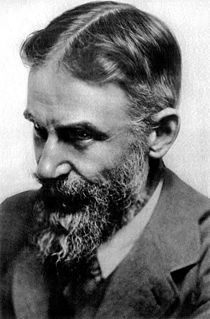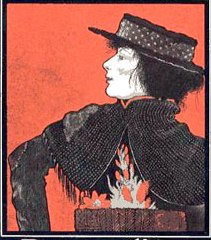
Radio drama is a dramatised, purely acoustic performance. With no visual component, radio drama depends on dialogue, music and sound effects to help the listener imagine the characters and story: "It is auditory in the physical dimension but equally powerful as a visual force in the psychological dimension."

Friedrich Robert Donat was an English film and stage actor. He is best remembered for his roles in Alfred Hitchcock's The 39 Steps (1935) and Goodbye, Mr. Chips (1939), winning for the latter the Academy Award for Best Actor.

Robert Archibald Shaw was an English actor, novelist, and playwright. He was nominated for an Oscar and a Golden Globe for his role as Henry VIII in the drama film A Man for All Seasons (1966).

The Last Tycoon is an unfinished novel by F. Scott Fitzgerald. In 1941, it was published posthumously under this title, as prepared by his friend Edmund Wilson, a critic and writer. According to Publishers Weekly, the novel is "[g]enerally considered a roman a clef," with its lead character, Monroe Stahr, modeled after historic film producer Irving Thalberg. The story follows Stahr's rise to power in Hollywood, and his conflicts with rival Pat Brady, a character based on prominent studio head Louis B. Mayer.
Gadfly most commonly refers to:

Thomas Nigel Kneale was a British screenwriter. He wrote professionally for more than 50 years, was a winner of the Somerset Maugham Award, and was twice nominated for the BAFTA Award for Best British Screenplay. In 2000, he received the Lifetime Achievement Award from the Horror Writers Association.

Man and Superman is a four-act drama written by George Bernard Shaw in 1903. The series was written in response to a call for Shaw to write a play based on the Don Juan theme. Man and Superman opened at the Royal Court Theatre in London on 23 May 1905, but it omitted the third act. A part of the act, Don Juan in Hell, was performed when the drama was staged on 4 June 1907 at the Royal Court. The play was not performed in its entirety until 1915, when the Travelling Repertory Company played it at the Lyceum Theatre, Edinburgh.

Ethel Lilian Voynich, néeBoole was an Irish novelist and musician, and a supporter of several revolutionary causes. She was born in Cork, but grew up in England. Voynich was a significant figure, not only on the late Victorian literary scene, but also in Russian émigré circles. She is best known for her novel The Gadfly, which became hugely popular in her lifetime, especially in Russia.

Candida, a comedy by playwright George Bernard Shaw, was written in 1894 and first published in 1898, as part of his Plays Pleasant. The central characters are clergyman James Morell, his wife Candida and a youthful poet, Eugene Marchbanks, who tries to win Candida's affections. The play questions Victorian notions of love and marriage, asking what a woman really desires from her husband. The cleric is a Christian Socialist, allowing Shaw—himself a Fabian Socialist—to weave political issues, current at the time, into the story.

Mrs. Warren's Profession is a play written by George Bernard Shaw in 1893, and first performed in London in 1902. The play is about a former prostitute, now a madam, who attempts to come to terms with her disapproving daughter. It is a problem play, offering social commentary to illustrate Shaw's belief that the act of prostitution was not caused by moral failure but by economic necessity. Elements of the play were borrowed from Shaw's 1882 novel Cashel Byron's Profession, about a man who becomes a boxer due to limited employment opportunities.

Pygmalion is a play by George Bernard Shaw, named after a Greek mythological figure. It was first presented on stage to the public in 1913.

Guns at Batasi is a 1964 British drama film starring Richard Attenborough, Jack Hawkins, Flora Robson, John Leyton and Mia Farrow. The film was based on the 1962 novel The Siege of Battersea by Robert Holles and was directed by John Guillermin. Although the action is set in an overseas colonial military outpost during the last days of the British Empire in East Africa, the production was made at Pinewood Studios in the United Kingdom.
Lloyd Rose is an American writer most associated with her work on various Doctor Who spin-offs. She has also written for the American television series Homicide: Life on the Street and Kingpin. She often jokes in her biographies that her name is the pen name of a writer called Sarah Tonyn, although she has not had any professional writing published under this name.

The Gadfly is a 1955 Soviet historical drama film based on the eponymous novel by Ethel Lilian Voynich and directed by Aleksandr Fajntsimmer. In 1955 the film was third in attendance in the Soviet Union, collecting 39.16 million ticket sales.

I Met My Love Again is a 1938 American romantic drama film distributed by United Artists, directed by Joshua Logan, Arthur Ripley and George Cukor. The screenplay was written by David Hertz, based on the novel Summer Lightning by Allene Corliss. The film stars Joan Bennett and Henry Fonda.
Edward Everett Rose was an American playwright. He adapted a number of popular novels into plays, including Janice Meredith, Richard Carvel, David Harum, Eben Holden, The Battle of the Strong, Alice of Old Vincennes, and The Rosary.

Annajanska, the Bolshevik Empress: A Revolutionary Romancelet is a one-act play by George Bernard Shaw, written in 1917.

Jitta's Atonement (1923) is an adaptation by George Bernard Shaw of the play Frau Gitta's Sühne by Siegfried Trebitsch. It is about a woman who has to atone to her husband for having an affair with his best friend. The atonement of both Jitta and other characters take unexpected forms. Shaw dramatically rewrote the last part of the play, giving it a more characteristically Shavian tone.


















